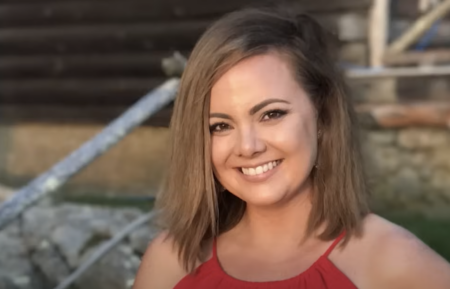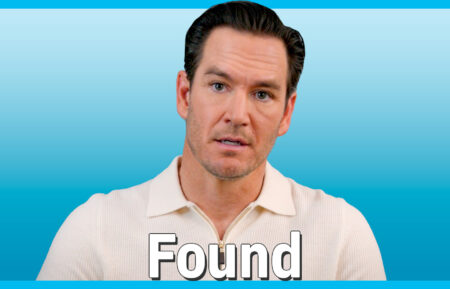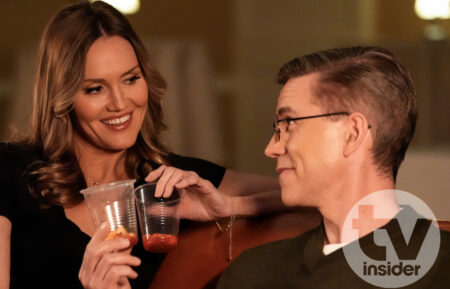20 Years Later, ‘Buffy the Vampire Slayer’ ‘The Body’ Episode Still Moves Us to Tears
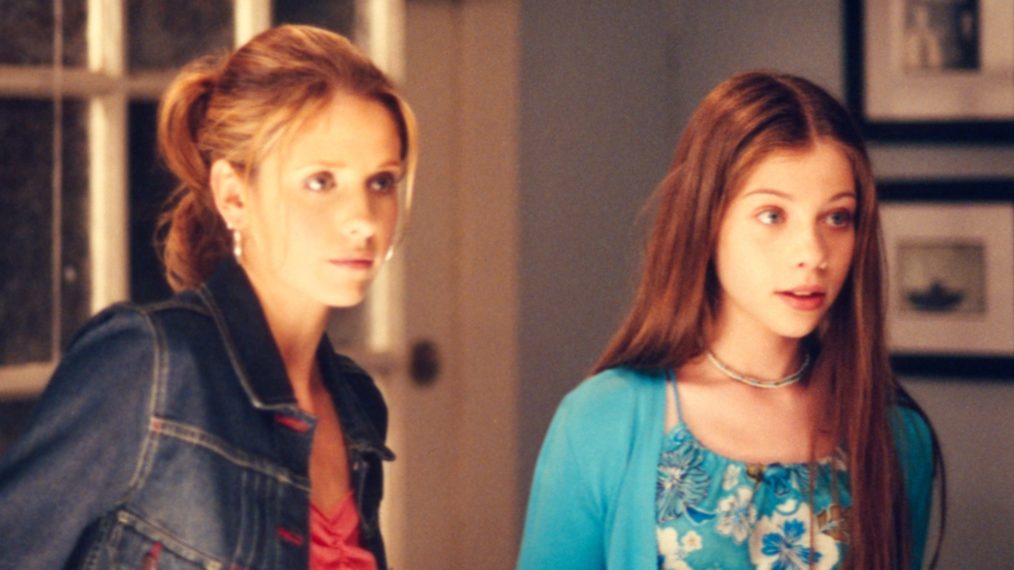
Opinion
You probably wouldn’t expect a show about monsters to produce one of the most moving portraits of grief and mourning ever depicted on television, but that’s what Buffy the Vampire Slayer did 20 years ago on February 27 with its Season 5 episode, “The Body.”
“The Body” picks up with the closing scene of the previous episode: Buffy Summers (Sarah Michelle Gellar) comes home to find her mom, Joyce (Kristine Sutherland), dead on the couch (we find out later, of an aneurysm). It’s hard to understate the shock of this death, how it comes out of the blue at the end of a normal case-of-the-week episode. This major character is just dead. But I think that’s the point.
We expect death on a show like Buffy, but we expect it by way of vampires, demons, and major climatic battles. That Joyce dies from a normal human-body failing is shocking. It feels incredibly poignant that the two biggest deaths of the series — excluding the series finale or the death of a certain character who comes back to life — happen in the most mundane, human ways possible. (The other one is Tara, who’s killed by a gun.) Usually a loud and dramatic show, this episode is quieter with sparse background noise and little dialogue, allowing it to slow down and focus on the minute details of the different ways people grieve.
In a lot of ways, it all comes back to the body — the idea that what used to be a full person, is now a thing. Buffy, who reacts to finding her mom’s body with a kind of stunned, bug-eyed silence, which hits infinitely harder than any melodramatic breakdown crying reaction ever could, claps her hands to her mouth the first time the phrase “the body” pops out of her mouth to refer to what used to be her mom. It’s made all the more significant by the fact that earlier in the episode, she corrects the woman on the 9-1-1 call about it.
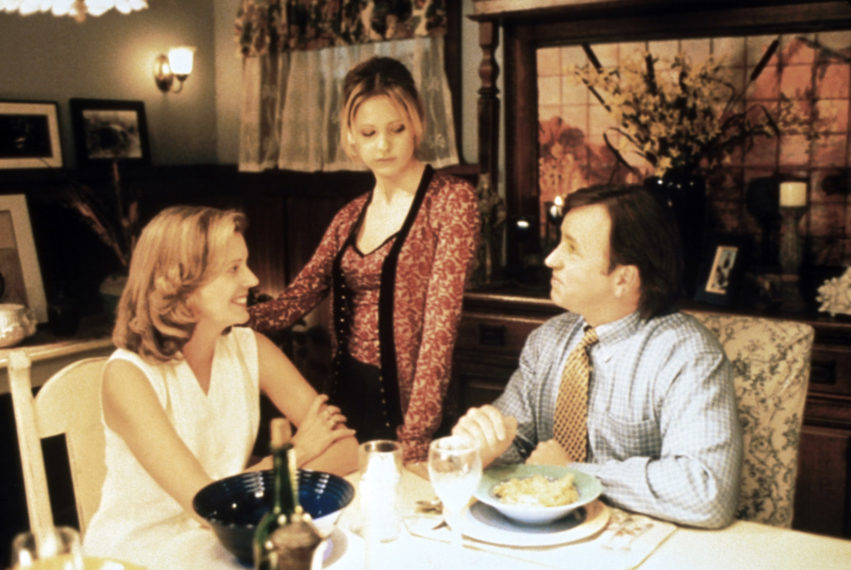
20th Century Fox Film Corp. / Everett Collection
“She’s cold,” says Buffy. “The body is cold?” the woman asks. “No, my mom is cold,” Buffy responds. So when she utters the phrase “the body,” she realizes with a sort of horror that she has internalized her mother’s death.
Buffy’s younger sister Dawn (Michelle Trachtenberg) needs to see the body herself in order to believe that her mother is truly dead. When she slips into the morgue, she gets attacked by a vampire (this is still a Buffy episode after all), and Buffy has to come and save her. The sheet covering Joyce gets pulled off in the scuffle and it’s not until Buffy dusts the vampire that either of them realize this. And that’s how the episode ends, with Buffy and Dawn both just staring at their mother’s dead body.
As for the Scooby Gang? They all react in their own ways. Willow (Alyson Hannigan) nervously flutters around and gets hung up on little things that don’t matter, like what shirt is appropriate to wear to a morgue. Xander (Nicholas Brendon) looks for someone to blame, either the season’s big bad Glory (Clare Kramer), or the doctors who discharged Joyce earlier in the season after her brain surgery. Anya (Emma Caulfield Ford) is that person who asks all of the blunt inappropriate questions, like if they’re going to be in the same room as a dead body, or if they’re going to cut the body open.
Anya seems like she’s being insensitive, until she explains that she has to ask these questions because she truly doesn’t understand what’s happening; how a person could be here one minute and gone the next and hurt everyone that they leave behind. It makes more sense when you remember that up until recently, she was an immortal vengeance demon who didn’t have to deal with things like mortality. Tara (Amber Benson), meanwhile, is quietly empathetic and supportive; she’s the only other character who has lost a parent so she understands what Buffy’s going through. When asked if her mother’s death was sudden, she responds: “No…and yes, it’s always sudden.” And doesn’t that just kind of sum things up.
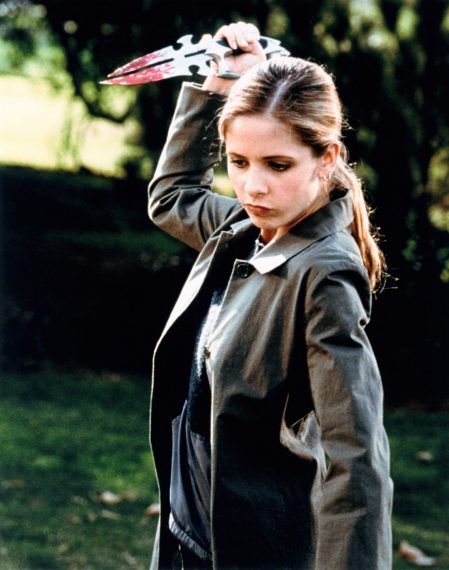
Sarah Michelle Gellar (Everett Collection)
The episode knows how to use the supernatural context of the show to drive home its points. Buffy especially feels the helplessness and guilt that those who have lost a loved one tend to feel. The episode periodically flashes to her picturing what might have happened if she’d done things differently, like if she’d gotten home sooner and been there when the aneurysm happened. The doctor tells her that there’s nothing anyone could have done, but because she is the Slayer, the person whose job it is to save people, it’s much more difficult for Buffy to accept this.
It’s not unusual for TV shows to kill off major characters, but what makes this episode remarkable is that while the instinct can often be to play up the drama of these moments, Buffy takes a minimalist approach, which lets the humanity shine through, making this episode truly iconic and timeless, even 20 years later.




